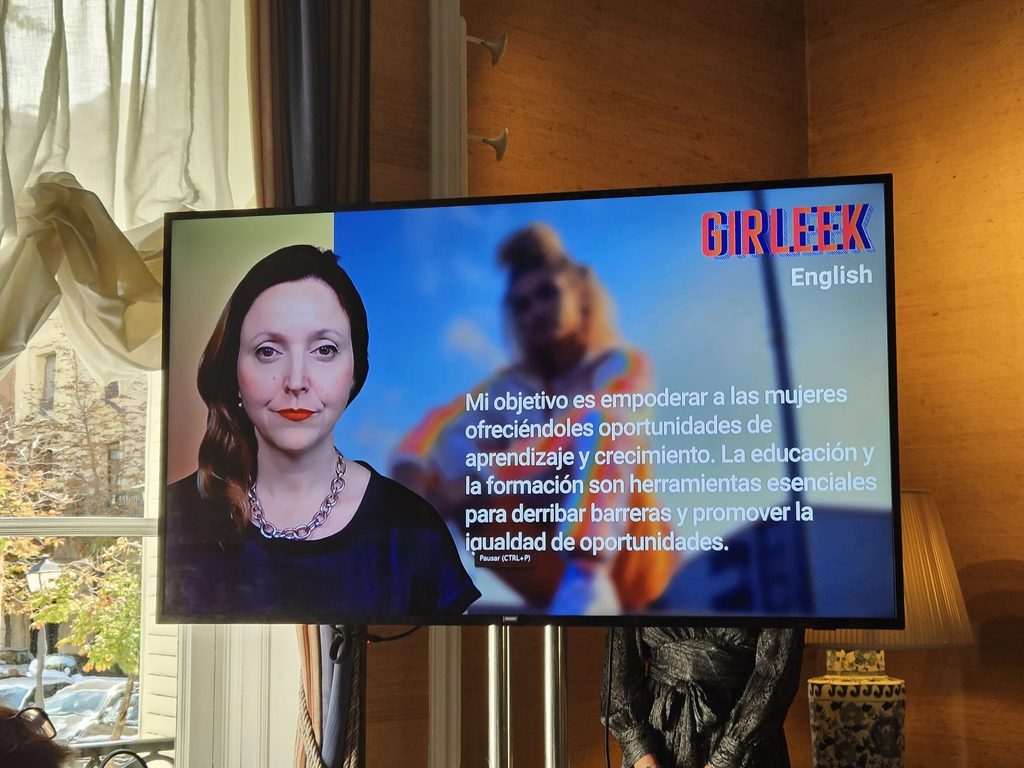Women make up just over half of the European population but represent only 15% of IT experts (18% in Belgium). This week, Julie Foulon of the organisation Girleek, is in Spain promoting her work in Brussels to reverse a male-orientated sector.
By enabling women, especially the most vulnerable ones, to stay connected with technological developments in society, Brussels company Girleek is helping women bridge the digital gap and also help them gain financial independence.
As a key advocate for promoting women in tech, Girleek founder Julie Foulon is part of the Brussels delegation in Madrid and Barcelona to promote the entrepreneurial know-how of the Belgian capital.
"The main focus of this mission is to really talk about women entrepreneurs, specifically about women in tech, and how to give them better access to training," Foulon told The Brussels Times. "I am giving a demonstration of the training we do with Girleek – a training in AI. You can see me speaking in many languages. But it is not me, it's an avatar"
For her, it is an interesting way to target more women to acquire digital skills, especially in Brussels, which is the second most cosmopolitan city in the world, with around 180 nationalities.
"Most of the time, we offer training for women who in their everyday lives are very far removed from tech," Foulon said. "We organise workshops for them, so they can learn to use ChatGPT and other AI tools to facilitate their digital lives: creating official documents, answering emails, things like that."
A recent study by the business management consultancy McKinsey Global Institute estimated that by 2030, some 800 million jobs could be lost globally due to AI, but also claimed it will approximately create 975 million new ones. "So it is very important that people, especially women, do not miss the boat."
The new code era
The lack of women's training in new technologies could lead to an increase in wage inequality as women who are not trained in new technologies often hold lower-paying jobs, as well as an increase in unemployment as women who are not trained in these new technologies are more likely to lose their jobs due to automation.
"One of the main reasons for the low number of women in tech is the fact that many of them do not have access to training," Foulon said. "In the past five years, Belgium ranked 25th (out of 27) in the EU for its percentage of women in STEM (science, technology, engineering, mathematics) studies. And what's worse: compared to the previous five years, we have not moved forward at all."
She acknowledged that, in general, there is a lack of interest in these kinds of topics among young women, calling it "something that needs to be worked on."
Related News
- Belgian PM and Budget Secretary visit Womenpreneur Tech Program
- Brussels Days: Belgian capital to promote economy and tourism in Madrid and Barcelona
However, the women who are interested often do not have access to training that suits their needs, Foulon explained. "This is what Girleek aims to do by offering them a three-month online programme. At the end of the three months, they have a certification, they have done an internship and they have done the course."
"This is really the new code era," she added. "People still think they need a degree in mathematics or spend five years as a programmer, but no, they can start quite easily with the tools that are already there."
More information about the Girleek training programmes can be found here.

